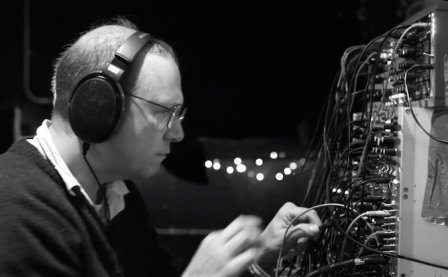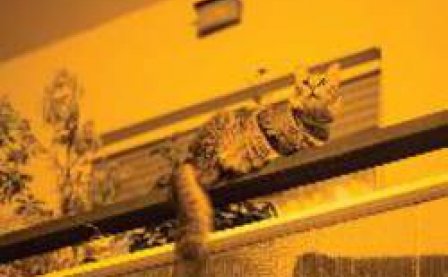There is comfort in being continually surprised. One would expect the third solo album from The Sea and Cake linchpin Sam Prekop to be an immensely entertaining rock record, but it is doubtful anyone would have anticipated just how little Old Punch Card owes to the artist’s past glories. Let’s face it, the man is grotesquely brilliant compared to the majority of musos making ‘art.’ Causing waves in a variety of artistic circles with his painting, photography, and music, Prekop knows that art redefines art with each new work. And that is how we should be looking at this release. Especially this release. Comparing this album to Prekop’s past, current, future, or imagined work is a futile exercise.
First off, Prekop is dead keen on limited resources with Old Punch Card. Aside from the lone, soft presence of a guitar on “November September,” the record is an instrumental affair, all of it recorded by Prekop playing patchbay analog synthesizers. Those pining for that marvelous voice and guitar may want to sit this one out. The second thing to know is that song structure is tossed out the window, just as was prognosticated in pre-release statements. This may sound like a private pet project of Prekop’s, but there is no reason we can’t all join in his indulgences as he navigates into these hitherto unchartered waters. Everyone here is a participant.
In this tradition of non-form electronic composition, it will not shock you to find on Old Punch Card plenty of popping and bubbling synthesizer work, with more cracks and creaks than a posse of arthritics being held captive in a hold of a ship. “Array Wicket,” like many of the album’s songs, features a full smorg of sound delights: lots of crackle, static, hiss, thumps, and tones. “Brambles” too is a good example of Prekop visiting a number of sound spheres within the confines of one song. It is a spastic, jumpy piece that flutters along for a minute before eventually sliding into a spacey drone loop and then dribbling into a few other dissonant worlds as it draws nearer to the end. There are instances of singular themes being let off their leash to scamper around the yard for a bit (the lovely butterfly patterns in “The Silhouettes,” the drone-y pipe organ feel of “A Places”), but this record does really embrace the “free music” aesthetic that Prekop set for himself.
I am guessing Old Punch Card was a labor-intensive process of recording and editing, but the music sounds incredibly organic, as though it grew into its finished state slowly as Prekop assembled it together instead of following any sound blueprint. Meticulously pieced together or not, the tracks must have been born from improvisation, because they lack any rigidity. It is patchy — made all the more interesting by its maker’s stubborn refusal to settle into any comfortable groove — but there is still an overriding softness to the set. In fact, there is a “blowing in the reeds” quality to the record even when the disc attempts to jar the listener’s expectations.
In a lesser person’s hands, this particular analog stew would have turned out to be nothing more than an album of farting robot sounds, but in Prekop’s it is a well-conceived piece of musical experimentation. Drastically more daring than previous releases, Old Punch Card shows a radical side to Prekop that is relentlessly inventive. After years of consistently decent music, Prekop is now playing the role of an elusive eel; just when you think you have him in your grasp, he slips away, waits for you to come upon him once more, then slips away again.
More about: Sam Prekop




